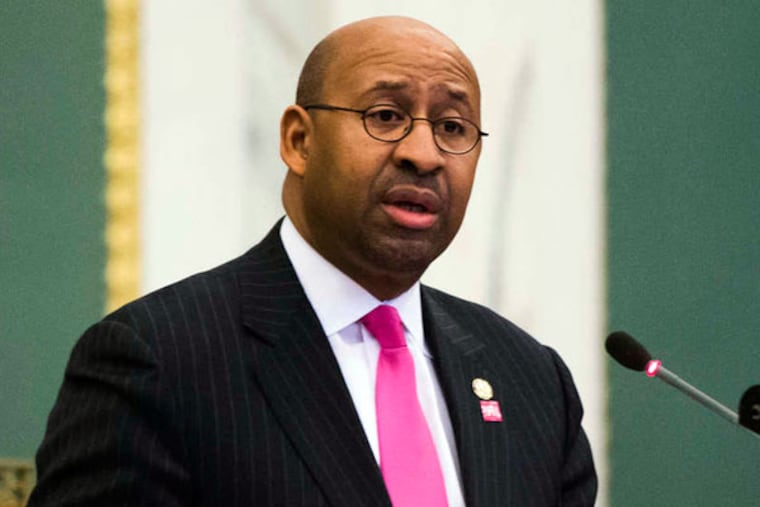City adopts new reporting requirements for campaign financing
The regulations affect groups that spend 5G or more to influence city elections.

THE MURKY REALM of campaign finance in Philadelphia elections got a healthy infusion of light yesterday.
Mayor Nutter, along with City Council President Darrell Clarke, signed into law new reporting requirements on groups, such as political-action committees and nonprofit organizations, that spend $5,000 or more to influence a city election.
"This law will illuminate Philadelphia's election process by expanding the reporting requirements for organizations that fundraise for the purpose of spending money on elections," Nutter said in a statement.
"Policy-makers, the courts and the public have long recognized that the best way to check the potential influence of campaign dollars on the decision-making of elected officials is to require public disclosure. I applaud the Board of Ethics for addressing this 'hidden' aspect of our electoral process and thank City Council for passing this bill."
The legislation, co-sponsored by Clarke and Councilwoman Marian Tasco, requires non-candidate donation groups to file campaign-finance reports every two weeks, starting six weeks before an election, rather than once a year. Big-money groups also must disclose expenditures made on television and radio ads within 50 days of an election.
Shane Creamer, executive director of the city Board of Ethics, which helped draft the legislation, said the new disclosure requirements would "ensure that the public will be fully informed about who is spending money to influence city elections, as well as who is funding those efforts."